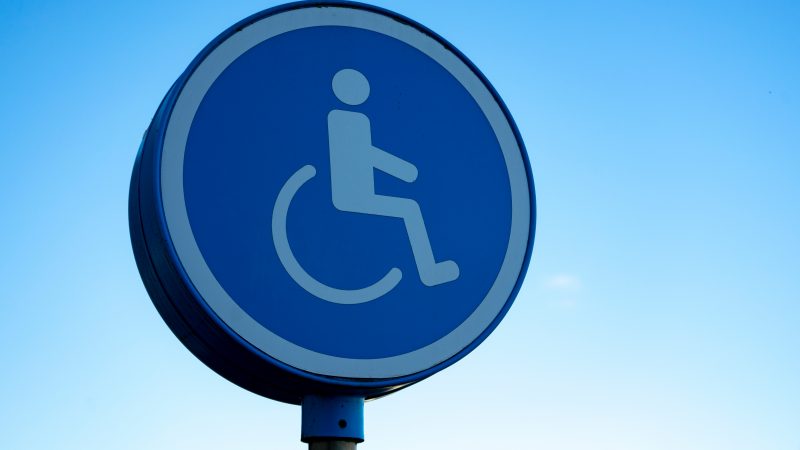
Disabled people were promised a bold, transformative new national strategy – but what we got was far from it. In the Prime Minister’s own words, the national strategy for disabled people was supposed to be “the most ambitious endeavour on disability in a generation”. After reading the long-delayed document, many disabled people are clear on one thing: this government has run out of ideas. They have repackaged projects already under review and recycled money already committed. After making ambitious promises, they have failed miserably in producing the goods to back up their spin.
The government produced 120 pages of promises, reviews and consultations as part of their attempt to hide their inaction. Disabled people, disabled people’s organisations, charities and unions simply aren’t buying it. Identifying the problems is a good start, but disabled people deserve much better. The time for talking is over. They need to get on with fixing the problems that hold disabled people back.
The Department for Work and Pensions Secretary and the minister for disabled people have the nerve to promote a strategy that truly fails to acknowledge the profound impact of Covid-19. The fact six out of ten deaths in the UK were linked to disabled people and people with long-term health conditions should feature prominently – it doesn’t. Instead, they brag about how many disabled people the survey had engaged. Yet we know the number of disabled people who responded to the survey for the supposedly national strategy is less than 0.1% of the UK’s disabled population.
Before the strategy even launched, I was contacted by countless disabled people and disabled people’s organisations fed up with the government’s approach. Like the Sewell report, they wanted their names removed from the strategy as they had not been consulted properly and wanted no association with it. The consultation has been so bad that disabled people have been forced to take the government to judicial review: they argue it was so poor, it may have been unlawful.
Even Tory peer Lord Shinkwin called the strategy “a damp squib”. Before its release, he made clear the DWP’s engagement with disabled people had been “offensive and disrespectful”, amounting to a “a PR exercise, and not a genuine listening exercise”. The national strategy for disabled people exposes the gaps between what this government promises and what its policies deliver. It might talk about removing voting barriers for disabled people. In reality, the Conservatives are forcing through their voter ID bill, which research has shown will make it much harder for disabled people to vote.
In principle, it pledges to support more disabled people into public office – a policy we should all welcome. In practice, during the pandemic the government cut both the EnAble and Access to Elected Office funds to assist disabled people with their increased cost of running for public office. The strategy commits no funding for replacing these pots of money, just vague support for a new scheme in April 2022. But the government knows that across the UK hundreds of local elections are scheduled for May 2022. This unacceptable delay leaves disabled people who want to represent their communities potentially missing out on this opportunity if they cannot afford to foot the bill.
The strategy has a section devoted to access to justice for disabled people. But it fails to acknowledge, or even mention, the cuts to legal aid and the disproportionate impact these have had on disabled people. The most glaring omission in a strategy that promised to focus “on the issues that matter most to disabled people” is social care. On his first day in office, Boris Johnson pledged to tackle the crisis in social care but we have yet to see any progress. The fact is, working-age disabled people now account for 64% of stretched adult social care budgets compared with 58% in 2018/19. To produce a national strategy and ignore this issue is shameful.
A future Labour government will do things differently. We won’t waste opportunities to deliver the changes disabled people need. While this government commits to being “mindful” of the United Nations Convention on the Rights of Disabled People, a Labour government will embed this convention at the heart of our policy-making. Unlike this government, we are determined to co-produce policies with disabled people that will transform their lives.




More from LabourList
‘Council Tax shouldn’t punish those who have the least or those we owe the most’
Two-thirds of Labour members say government has made too many policy U-turns, poll reveals
‘Two states, one future: five steps on the path to peace for Israelis and Palestinians’